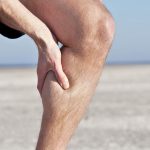When the brain is aleep, it clears itself of harmful toxins, a process that may reduce the risk of Alzheimer’s, researchers say.
A study of mice found during sleep, the flow of cerebrospinal fluid in the mind increases drastically, washing away dangerous waste proteins that develop between brain cells while driving hours. It is just as a dishwasher, says Dr. Maiken Nedergaard, a professor of neurosurgery at the University of Rochester and a writer of the field of science. The outcomes appear to provide the very best explanation of individuals and animals need sleep. It might help clarify a cryptic organization between sleep problems and brain disorders, including Alzheimer’s if this turns out to be true in people as well. Nedergaard as well as a team of scientists found the cleaning procedure while examining the brains of mice that were sleeping.
The scientists found that during slumber, the system removing fluid from the brain in an extremely fast speed and which circulates cerebrospinal fluid throughout the brain and nerve system was pumping fluid to the brain, Nedergaard says. The team found that this improved flow was made possible in part since when the mice went to sleep, their brain cells really shrank, which makes it simpler for fluid to circulate. The brain cells enlarged again when a creature woke up as well as the flow between cells slowed to a drip. It is almost like shutting and opening a faucet, Nedergaard says.
It is that striking. The team, which will be financed by the National Institute of Neurological Disorders and Stroke of Nedergaard, had formerly demonstrated that this fluid was carrying waste products that develop in the spaces between the brain cells away. Because what’s becoming washed away while sleeping are waste proteins which are toxicity to brain cells, the procedure is essential, Nedergaard says. This may explain why we do not think certainly following a sleepless night and why a protracted lack of sleep can really kill an animal or a man, she says.
So just why does not the brain do that kind of housekeeping all of the time? Nedergaard believes it is because cleaning requires lots of energy. It is likely not possible for the brain to both speak and in the similar time conscious of the atmosphere and clean itself and move and so forth, she says. The brain cleaning procedure continues to be found in baboons and rats, although not in people, Nedergaard says. Nonetheless, it might give you a brand new means of comprehending human brain disorders including Alzheimer’s. That is because one among the waste material removed from the mind while asleep is the material that forms tacky plaques linked with the disorder, beta amyloid.
That is likely not a coincidence, Nedergaard says. Is not it intriguing that all other ailments and Alzheimer’s connected with dementia, they’re linked to sleep problems, she says. Researchers who examine Alzheimer’s disease say Nedergaard’s research may help clarify a number of latest findings related to sleep. Certainly one of those calls for how sleep changes amounts of beta amyloid, says Randall Bateman, a professor of neurology Washington University in St. Louis who was not involved with the study.
“Beta amyloid concentrations continue to increase while a person is awake,” Bateman says. “And then after people go to sleep that concentration of beta amyloid decreases. This report provides a beautiful mechanism by which this may be happening.”
The report also offers a tantalizing hint of a new approach to Alzheimer’s prevention, Bateman says. “It does raise the possibility that one might be able to actually control sleep in a way to improve the clearance of beta amyloid and help prevent amyloidosis that we think can lead to Alzheimer’s disease.”
More from Things Health
-
Visual Signs of Poor Health That You Probably Ignore (But Shouldn't)
We often think that being diagnosed with an illness such as diabetes, heart disease, stroke or cancer as something that happens out of the blue.…
-
9 Signs Your Loved One Might Have Alzheimer's Disease
According to the Alzheimer's Association there are over 5 million Americans who suffer from Alzheimer's disease, most of whom are over the age of 65.…
-
Spending Time Alone Is The Only Way To Get Actual Rest
Imagine this. It is a Saturday morning, and fall sun is falling throughout the blinds. There is a sit down elsewhere, a book, and a…
-
Study Suggests That Stroke and Dementia Risk Is Linked to Artificial Sweeteners
Consuming a can a day of low- or no-sugar soft drink is associated with a much higher risk of having a stroke or developing dementia,…
-
Understanding the Causes of Leg Cramps
Leg pains and cramps can be a very uncomfortable experience for anyone. Thus, it is essential that you understand what remedies will work for you…






